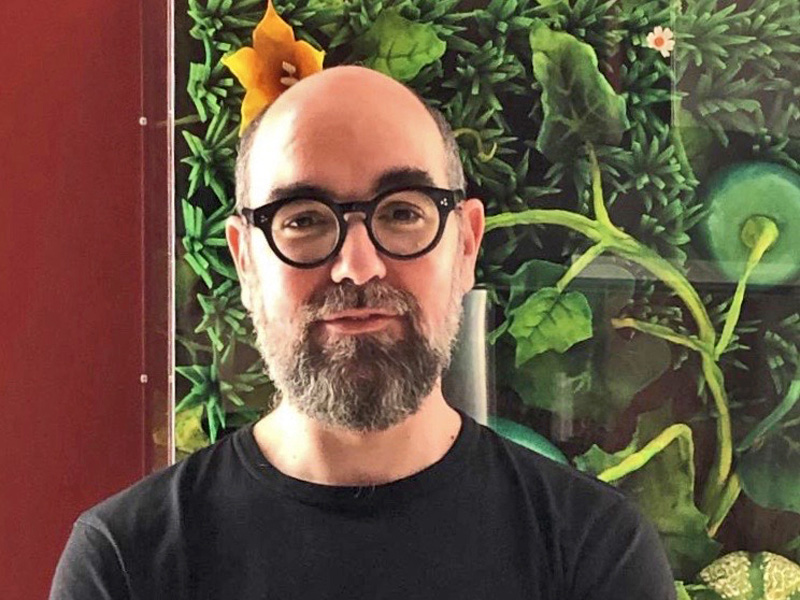Enrico Carlo Bonanate from Turin
His new daily ritual…
If it weren't for the drama we were experiencing I could say that this period was even beautiful. I spent the lockdown with my dearest loved ones – Lucia, my partner and Antonio, our dachshund – in our bright home in Turin e, at home, I continued working, because the bureaucratic and administrative part of my job (the most “boring”…) he couldn't go into quarantine. For the rest of the time we ate a lot and gained a lot of weight, opened the best bottles in our cellar for ritual virtual aperitifs with friends, applauded and sung from the balconies, clean house, reread old books, listened to good music and watched marathons of endless TV series, fantasized about our next trips... We worried about the people we love, who luckily are all fine, cut each other's hair, hugged each other in sad moments... To tell the truth, sometimes we even got bored, but we have learned to appreciate boredom. It, then, many other small family moments and great gestures of social solidarity that I will never be able to forget, just as I will never forget the silence and the drama, but magnificent, beauty of deserted Turin.
How your way of working has changed?
Beyond the transition to the digital sphere and the drastic reduction in mobility, an obvious feeling of uncertainty regarding the future was at the same time the bearer of a great imaginative burst and many reflections on the long term. It would be false and rhetorical to talk about "the positive side" of the situation, but it must be said that, in work, it is interesting to observe how the dynamics change when deadlines and planning possibilities move further forward in time, an unprecedented time and with uncertain characteristics. I would say that more than I have changed my ways of working, I tried as much as possible to adapt their mindset to this moment of great global uncertainty, in which I believe it is more important than ever to respect the times of nature and not bend them to the logic of the contemporary global market, which are the most anthropocentric you can think of.
Museums and galleries have reacted to the moment with digitalization and virtuality. What are yours “strategy” to establish new relationships?
As we wrote in our Pav Bulletin, with the lockdown we discovered ourselves less immaterial than we thought. At the beginning, while truly appreciating the "social" work of many museums and operators in the sector, I felt a little dazed by all this virtual art offering and I preferred to stop and stop the PAV communications. Only after a period of reflection and regenerating silence, I decided to get closer to our audience with discretion, developing some formats dedicated to digital (the three sections of the PAV Bulletin and some specific initiatives for Instagram such as the daily stories “Pills of PAV” and the #pavnatureinlockdown challenge). With the PAV Staff we are developing other virtual projects for the future, including one dedicated to young artists, but we must confess that we don't like this dimension very much, despite the fact that we adapted to implement it due to the exceptional nature of the moment. Surely there will be something good left, but we must not forget that artistic production has its specific places and spaces of relationship. The "new" relationships must be functional so as not to break the old relationships with space and communities, do not replace them.
How do you imagine the world, when everything will start again?
I prefer to talk about the direction in which I hope the world will go when we can truly start again. I wouldn't say anything new if I started talking about a different relationship with the environment, of a less dichotomous conception between nature and culture, of a different economy, not oriented towards ferocious growth mechanisms that damage the environment, of animals and people. I wouldn't really say anything new, if I started talking about more empathetic relationships, of a different company. At PAV we carry these principles forward, these battles, for more than ten years. I wish the world was more like the imagination and civic commitment behind our work. I would like the warnings of science to no longer be considered as trivial concerns. This is the time to think about global warming and the protection of planet Earth.
Enrico Carlo Bonanate was born in Turin in 1977 and is the Director of PAV – Living Art Park, Experimental Center of Contemporary Art of Turin, designed by Piero Gilardi. Active in the PAV cultural association since its origins, always a great lover of contemporary art and the "plant world", in 2015 he decides to definitively abandon his career as an administrative lawyer to work with art and nature.
www.parcoartevivente.it

